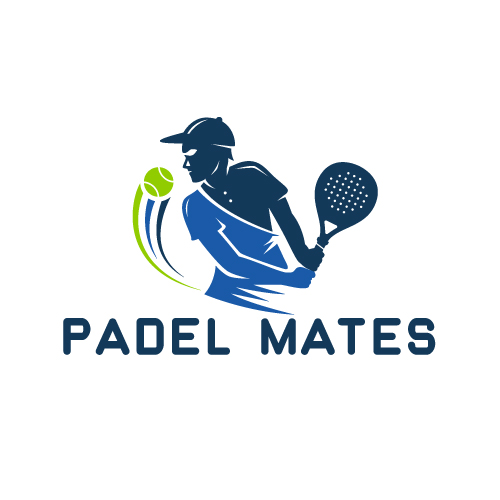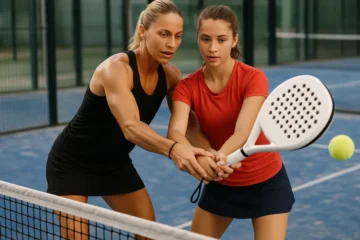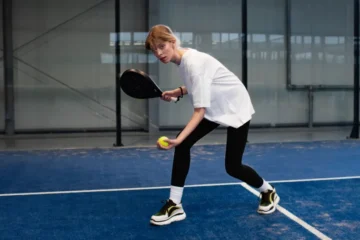Padel is fast, explosive, and relentless. Unlike tennis, where points may be short, padel often features long rallies, quick pivots, and rapid changes of direction that demand both aerobic and anaerobic energy. To keep up, players need more than just sharp reflexes and solid technique—they need the right fuel in their bodies and the right recovery strategies afterward.
Yet many padel enthusiasts focus only on improving their shots, ignoring nutrition and recovery. Without proper fuel, energy levels dip, concentration wavers, and injuries become more likely. Similarly, without good recovery habits, performance stagnates, and fatigue builds over time.
The good news? With a few targeted strategies, you can give your body exactly what it needs before, during, and after matches. This guide will walk you through practical nutrition tips, hydration strategies, recovery tools, and sample routines tailored specifically for padel players. By the end, you’ll know what to eat, how to hydrate, and how to recover like a pro.
Part 1: The Padel Player’s Plate – Nutrition Strategies
1.1 Pre-Match Fuel: Loading for Performance
What you eat before stepping on the court can make the difference between powering through long rallies or hitting a wall halfway through. The key here is preparation.
Timing is Everything
The best time to eat a proper pre-match meal is 2–3 hours before you play. This window allows your body to digest, store glycogen, and prepare for explosive energy demands. Eating too close to the match risks sluggishness or stomach discomfort, while eating too early means you might run out of fuel.
What to Eat
- Complex Carbohydrates (the energy base):
Foods like oats, brown rice, whole-wheat pasta, or sweet potatoes provide slow-release energy. They keep glycogen stores topped up, fueling sprints and sudden bursts on court. - Lean Protein (muscle protection):
Include a moderate portion of grilled chicken, fish, tofu, or lentils. Protein helps maintain muscle tissue, especially important in the stop-and-go nature of padel. - Healthy Fats (supportive, but limited):
Small amounts of avocado, olive oil, or nuts add satiety without slowing digestion. Keep portions light, since fats take longer to digest.
The 30–60 Minute Snack
Right before a match, a small, quick-digesting carb can provide an extra kick. Great options include:
- A banana
- A rice cake with honey
- An energy bar
- A handful of dates or dried fruit
Hydration Pre-Match
Hydration should start hours before, not just during warm-up. Aim for 500 ml of water about 2–3 hours before the game, then sip small amounts as match time approaches.
1.2 During the Match: Maintaining Energy & Hydration
Once you’re on court, the challenge shifts to sustaining energy and preventing dehydration.
Hydration Rules
- Sip water regularly during changeovers rather than gulping.
- For matches longer than 60–90 minutes or when playing in hot conditions, an electrolyte drink is essential. Sodium and potassium help replace what’s lost through sweat, preventing cramps and dips in performance.
Quick Energy Boosts
Padel can stretch over multiple sets and last much longer than expected. To keep blood sugar stable, turn to easily digestible carbs such as:
- Bananas
- Energy gels
- Sports drinks
- Small handful of raisins or dates
These options are light, fast-absorbing, and won’t weigh you down.
1.3 Post-Match Recovery: The Golden Hour
The minutes after your match are crucial. This is when your muscles are most receptive to nutrients, making it the best time to accelerate recovery.
The 30–60 Minute Window
Within an hour after playing, your body is primed to absorb carbs and protein. Delaying this window can slow glycogen replenishment and muscle repair.
What to Eat Post-Match
- Carbs to Replenish Energy:
Options like a bagel, fruit, rice, or even chocolate milk provide the glycogen refill your muscles crave. - Protein to Repair Muscles:
Aim for around 20–25 grams of protein to kickstart muscle recovery. A protein shake, Greek yogurt, eggs, or lean meat all work well.
Example Recovery Meals
- Grilled chicken with quinoa and roasted vegetables
- Salmon with sweet potato and broccoli
- A smoothie with banana, protein powder, almond milk, and spinach
Part 2: Beyond the Court – Essential Recovery Techniques
Nutrition is only half the battle. To truly perform at your best, recovery habits need just as much attention.
2.1 Rehydration: It’s More Than Just Water
Simply drinking water isn’t always enough—especially after sweating heavily.
- Weigh Yourself Pre- and Post-Match: Every 1 kg lost ≈ 1 liter of fluid needed to replace it.
- Don’t Forget Electrolytes: Sodium, potassium, and magnesium are critical for nerve and muscle function. Coconut water, electrolyte tablets, or rehydration drinks can speed up recovery.
2.2 Sleep: The Ultimate Recovery Tool
No supplement or technique beats the power of quality sleep.
- Why It Matters: Deep sleep triggers growth hormone release, crucial for tissue repair and recovery. Poor sleep leads to slower reaction times, reduced accuracy, and higher risk of injury.
- Tips for Better Sleep:
- Stick to a consistent bedtime
- Avoid screens 1 hour before bed
- Keep your room cool, quiet, and dark
- Use breathing or relaxation exercises if winding down is difficult
2.3 Active Recovery & Mobility
Taking care of your muscles between matches ensures longevity and reduces soreness.
- Active Recovery: Light cycling, walking, or swimming the day after a tough match improves circulation and reduces stiffness.
- Mobility Work:
- Dynamic stretching before playing primes your body for explosive moves.
- Static stretching and foam rolling post-match help lengthen muscles and release tight fascia.
- Focus areas for padel: shoulders, hips, and knees, which are heavily taxed in lateral movements and overhead shots.
2.4 Listen to Your Body: Rest & Injury Prevention
Pushing too hard without rest is a recipe for overuse injuries.
- The Role of Rest Days: Muscles adapt and grow during rest, not while training. Incorporating 1–2 rest days per week prevents burnout.
- Pain vs. Soreness:
- Soreness = a normal response to intense activity, often easing in 24–48 hours.
- Sharp, persistent pain = a red flag to rest and possibly consult a professional.
Part 3: Sample Plans & Practical Tips
3.1 A Sample Match Day Routine
Let’s put theory into practice with an example schedule for a 10:00 AM match:
- 7:00 AM (Breakfast): Oatmeal with berries and a scoop of protein powder.
- 9:30 AM (Pre-Match Snack): Banana or small energy bar.
- During Match: Sip water at every changeover; add an electrolyte drink if hot or match extends beyond 60 minutes.
- 12:00 PM (Post-Match Recovery): Chocolate milk or protein shake within 30 minutes. Then lunch of grilled chicken, rice, and steamed vegetables.
- Evening: 20-minute walk, foam rolling, balanced dinner (e.g., salmon, potatoes, salad).
This routine ensures steady energy, sustained hydration, and optimized recovery.
3.2 Supplements: Do You Need Them?
Supplements can support your performance, but they should never replace a balanced diet.
- Whey Protein: Convenient for hitting protein targets, especially post-match.
- Creatine: Backed by research, creatine can enhance short bursts of explosive effort—ideal for padel rallies.
- Electrolyte Tablets: Handy for hot climates or players who sweat heavily.
⚠️ Important: Always consult with a nutritionist or doctor before starting new supplements, as individual needs vary.
FAQs: Nutrition & Recovery for Padel Players
1. What should I eat before a padel match?
Aim for a balanced meal 2–3 hours before playing. Focus on complex carbohydrates (oats, rice, pasta, sweet potato), moderate lean protein (chicken, fish, tofu), and small amounts of healthy fats (avocado, olive oil). About 30–60 minutes before, have a light carb snack like a banana or energy bar.
2. How much water should I drink before playing padel?
Start hydrating hours before your match. A good rule is about 500 ml (half a liter) of water 2–3 hours before stepping on court, then sip small amounts leading up to warm-up.
3. Do I need sports drinks during padel matches?
For matches under 60 minutes, water is usually enough. For longer matches or hot conditions, an electrolyte drink helps replace sodium and potassium lost in sweat, reducing risk of cramps and fatigue.
4. What’s the best snack to eat during a padel match?
Choose quick-digesting carbs: bananas, raisins, dates, energy gels, or sports drinks. These provide fast energy without upsetting your stomach.
5. How soon after a match should I eat?
Within 30–60 minutes is best. This is the “golden window” when your muscles absorb nutrients efficiently. Pair carbs (fruit, rice, bread) with protein (yogurt, eggs, chicken, protein shake).
6. Is chocolate milk really good for recovery?
Yes! Chocolate milk is a simple, effective recovery drink because it contains the right balance of carbs and protein, plus fluids to rehydrate.
7. How important is sleep for padel recovery?
Very important. Deep sleep promotes growth hormone release, which repairs muscle tissue. Aim for 7–9 hours of quality sleep for peak performance.
8. Should I stretch before or after playing padel?
Before: dynamic stretching (leg swings, arm circles) to warm up.
After: static stretching and foam rolling to improve flexibility and reduce soreness.
9. Do supplements improve padel performance?
Supplements like whey protein, creatine, or electrolyte tablets can support performance, but they should never replace a balanced diet. Always consult a professional before starting supplements.
10. How do I know if I need a rest day?
If you feel persistent fatigue, sharp pain, or reduced performance, it’s time to rest. Rest days are essential for recovery and preventing overuse injuries.




